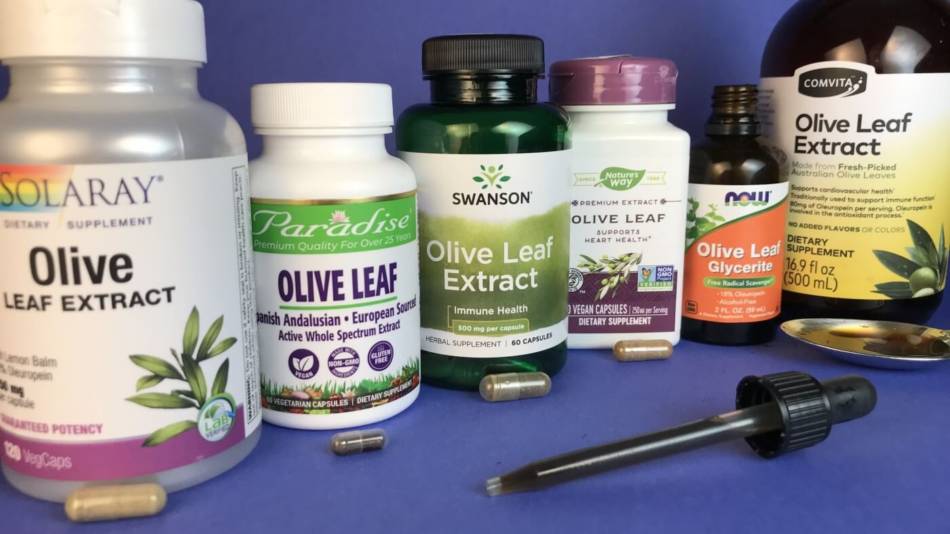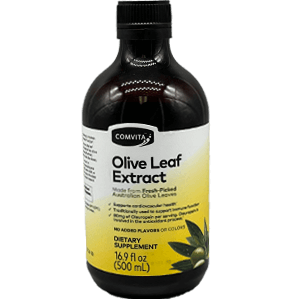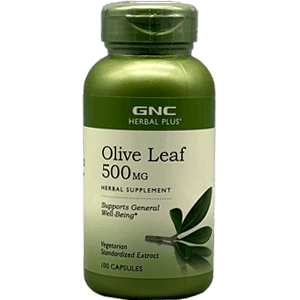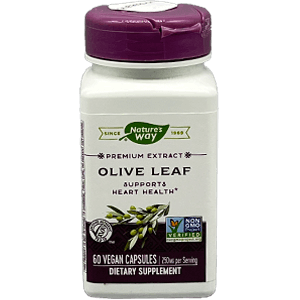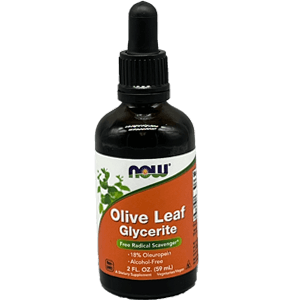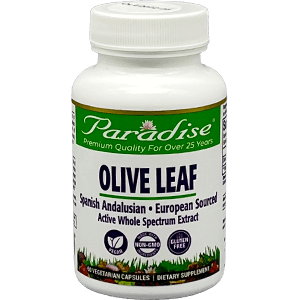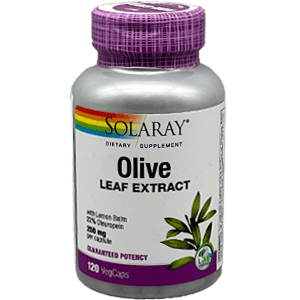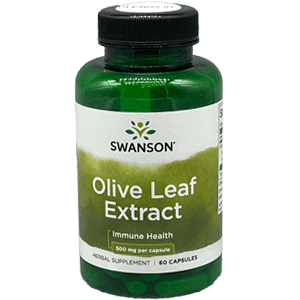Summary
-
What is olive leaf extract?
The leaves of olive trees contain a variety of compounds, with the predominant one being oleuropein, which is not found in significant concentration in the olive fruit. Dried olive leaf is about 6% oleuropein, while extracts (the most common form in supplements) provide about 1% to 40% oleuropein (see What It Is).
-
What are the health benefits of olive leaf extract?
Some evidence suggests that olive leaf extract can slightly lower elevated blood pressure and cholesterol levels. Preliminary research suggests that olive leaf extract may have a modest benefit in people with type 2 diabetes, help retain bone density, and shorten the duration of colds (but not prevent them). Used topically, it may speed the healing of cold sores (see What It Does).
-
Which is the best olive leaf extract supplement?
ConsumerLab's tests showed that the selected products contained their expected amounts of oleuropein (and several provided more) and passed purity testing for heavy metals. However, claimed amounts of oleuropein per serving ranged about 3-fold across the products (from 36 to 100 mg), so a consumer needs to factor this in when choosing an olive leaf extract product (see What CL Found).
Among the products Approved in our tests, we found that one, sold as capsules, provided superior value, providing oleuropein at just ¼ the price or less of other products. It was chosen as ConsumerLab's overall Top Pick for olive leaf extract. For people who prefer a liquid, we selected a Top Pick liquid olive leaf extract that also offers good value and other important attributes.
-
What is a typical dose of olive leaf extract?
As described in the What It Does section, clinical trials have used various extracts providing 100 to 136.2 mg oleuropein daily from products standardized to about 1% to 40% oleuropein. That means to get a dose of 100 mg of oleuropein, you would need 250 mg of a 40% extract, 500 mg of a 20% extract, or 1,000 mg (one gram or about 1 mL if a liquid) of a very low-concentration (1%) extract. That is, the higher the % oleuropein, the less extract you need, so be sure to check this on labels.
-
Is olive leaf extract safe?
Olive leaf extract appears to be generally safe and well-tolerated based on small clinical trials, although gastrointestinal symptoms can occur. It should be used with caution in people with hypoglycemia, diabetes, or those taking blood sugar lowering medications. Allergic reactions can occur, particularly among people who are sensitive or allergic to olive pollen or the pollen of related plants. For more details, see Concerns and Cautions.
+— 15 sources
In addition the results of its expert testing, ConsumerLab uses only high-quality, evidence based, information sources. These sources include peer-reviewed studies and information from agencies such as the FDA and USDA, and the National Academy of Medicine. On evolving topics, studies from pre-print journals may be sourced. All of our content is reviewed by medical doctors and doctoral-level experts in pharmacology, toxicology, and chemistry. We continually update and medically review our information to keep our content trustworthy, accurate, and reliable. The following sources are referenced in this article:
- Termentzi, AOCS Press 2015
- Scheffler, J Ethnopharmacol 2008
- Susalit, Phytomedicine 2011
- Lockyer, Eur J Nutr 2017
- Wainstein, J Med Food 2012
- Imperatrice, Nutrients 2024
- Filip, J Nutr Health Aging 2015
- Horcajada, Ther Adv Musculoskelet Dis 2022
- Bisignano, J Pharm Pharmacol 1999
- Somerville, Nutrients 2019
- Ben-Amor, Viruses 2021
- Lorzaheh, Clin Case Rep 2021
- Abdel-Kader, Saudi Pharm J 2019
- Unsel, J Investig Allergol Clin Immunol 2009
- Calzada, Sci Rep 2019
You must
be a member to get the full test results, along with ConsumerLab's recommendations. You'll get results for 6 olive leaf extract supplements selected for testing by ConsumerLab.com, and one additional product that passed the same testing in CL's voluntary Quality Certification Program.
In this comprehensive review, you'll discover:

 Which olive leaf extracts failed testing, which passed, and which are CL's Top Picks
Which olive leaf extracts failed testing, which passed, and which are CL's Top Picks How olive leaf extract supplements compare on amounts of oleuropein, the key compound in olive leaf extract, as well as quality and price
How olive leaf extract supplements compare on amounts of oleuropein, the key compound in olive leaf extract, as well as quality and price
 The clinical evidence for and against olive leaf extract for lowering blood pressure, blood sugar and insulin control, easing knee pain, reducing symptoms of colds and respiratory infections, topical use for cold sores, and more
The clinical evidence for and against olive leaf extract for lowering blood pressure, blood sugar and insulin control, easing knee pain, reducing symptoms of colds and respiratory infections, topical use for cold sores, and more Dosage and what to look for on olive leaf extract labels, as concentrations of oleuropein can vary widely, from 1% to 40%
Dosage and what to look for on olive leaf extract labels, as concentrations of oleuropein can vary widely, from 1% to 40% Safety concerns and cautions with olive leaf extract, including interactions with diabetes medications and potential allergic reactions
Safety concerns and cautions with olive leaf extract, including interactions with diabetes medications and potential allergic reactions
As a ConsumerLab.com member, you may print a copy of this report for your personal use.
You can access a special print version by clicking the "Print" icon in the upper right corner of this report.
You can then use your web browser's print functions to print the whole report or just selected pages.
You may also email or post a link to this report using the web address above.
Non-members using the link will see a free summary and can join to view the full report.
Other means of copying or distributing this report, in part or full, are not permitted.
If you are sight-impaired and your computer is having trouble converting the text in this report to speech,
contact us for assistance at Membership@ConsumerLab.com or by
phone at 914-722-9149.

